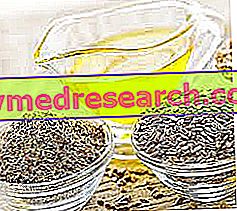Generality
Esophagitis is a fairly common condition, characterized by inflammation of the esophagus due to excessive uptake of acidic juices from the stomach.
In addition to these episodes of gastroesophageal reflux, among the less frequent causes of esophagitis can be included infectious diseases (in immunocompromised patients), ionizing radiations, allergies (eosinophilic esophagitis) and the ingestion of particular drugs or corrosive substances.

In depth:
Esophagitis symptomsMain causes of esophagitis
Risk factors
Esophagitis complications
Esophagitis diagnosis
Treatment
Symptoms
To learn more: Symptoms of esophagitis
Difficulty and pain on swallowing (dysphagia and odinophagy), feeling that food finds it difficult to descend along the esophagus, episodes of retrosternal chest pain, nausea, vomiting, stomach pains, regurgitation of saliva and loss of appetite.
Contact your doctor promptly if these symptoms become particularly severe, do not resolve with common over-the-counter antacids (sodium bicarbonate type) or are associated with those typical of a flu (fever, headache and muscle pain).
Causes
Reflux Esophagitis
At the junction of the stomach and esophagus there is a narrowing called the gastroesophageal sphincter. Normally ajar, this special valve opens during chewing to allow the passage of the swallowed bolus and, of course, during belching and vomiting. The incontinence of the gastroesophageal sphincter and its opening at inopportune moments, determine the ascent into the esophagus of the gastric contents which, by virtue of the marked acidity, ends up strongly irritating the mucosa. When such episodes are repeated with an abnormal frequency, we speak of gastroesophageal reflux disease, whose chronicity sees precisely in the esophagitis one of the most important complications.
Eosinophilic esophagitis
The name recalls that of the white blood cell population responsible for controlling the inflammatory and allergic reaction. High concentrations of these cells in the esophageal tissues, together with the inevitable inflammatory state they entail, are generally consequent to one or more food allergies (milk, soy, wheat, peanuts, etc.); Eosinophilic esophagitis can however appear in response to non-food allergies, such as those from pollen inhalation.
Drug Esophagitis
The problem occurs when a pill - taken with insufficient amounts of water - or its residues, remain in contact with the esophageal mucosa for a long time. Among the drugs potentially implicated in this type of esophagitis, we recall NSAIDs (aspirin, ibuprofen, naproxen etc.), some antibiotics (tetracycline and doxycycline), potassium chloride and bisphosphonates (used in the treatment of osteoporosis).
Infective esophagitis
It affects immunocompromised individuals, such as HIV positive patients for many years or cancer patients, and is caused by infectious agents of bacterial, fungal or viral origin. Common is the esophagitis from Candida albicans, a fungus normally present in the intestine, in the oral cavity and in the vagina (in concentrations such as not to be pathogenic); in addition to the weakening of the immune system, this type of esophagitis is favored by prolonged use of antibiotics and chronic hyperglycemia (diabetes).
Esophagitis - Video: Causes, Symptoms, Cures
X Problems with video playback? Reload from YouTube Go to Video Page Go to Wellness Destination Watch the video on youtubeRisk factors
- REFLUX EXPOSURES: obesity, smoking, fatty foods, alcohol and coffee, pregnancy, hiatal hernia, clothing that is too tight, eating before going to bed. To learn more: nutrition and gastroesophageal reflux.
- EOSINOFILE ESOFAGITI: familiarity with the disease.
- IATROGENE ESOFAGITI: swallow pills with strange or excessive shape; ingest them with insufficient amounts of water or even without drinking; take them before going to bed.
- INFECTIOUS ESOPHITES: AIDS / HIV, certain types of cancer or chemotherapy treatments, use of immunosuppressive drugs (for example after organ transplantation), various diseases of the immune system.



